Interview: Hartsman and Ju On Atlas Reactor's Change to B2P
Trion Worlds shocked a lot of people when they announced that their previously free-to-play title Atlas Reactor would transition into a buy-to-play title. With all the questions swirling around about the change, I had the opportunity to chat directly with Peter Ju (PJ), Executive Producer, and Scott Hartsman (SH), CEO, about the change and specifically address some player concerns and get a roadmap on where the game goes from here.
Magicman (MM): Before we get started, can you please introduce yourself to our readers and explain what you do on Atlas Reactor day-to-day?
PJ: Sure! My name is Peter Ju and I am the Executive Producer for Atlas Reactor. Early on in development I helped with implementing the initial prototype for the game and engineering in general (my background is as an engineer). As the team and game have grown, my responsibilities have shifted towards determining and prioritizing what goals are most important for Atlas Reactor in the short and long-term and figuring out the best way to achieve them.
MM: Ok, so the big question of the day, after reading the Producer’s Letter, players now know that Atlas Reactor has dropped the free-to-play plan and opted for a buy-to-play model. What drove this decision?
PJ: There are a lot of different business models that work for a lot of different games. There are tons of examples of successful free-to-play, buy-to-play, and pay-to-play games out there.
We started with a free-to-play model that was supported by the purchasing of freelancers and cosmetics and time-savers. As we were going through Alpha and Beta testing, it became apparent to us that if we gave access to all the freelancers, it would improve a ton of aspects of Atlas Reactor. Players have a better chance of finding a freelancer they enjoy playing initially. Players stick around longer because they have more freelancers to master. We have more high quality matches sooner because players can learn how to play and therefore play against all the freelancers. Matchmaking becomes better when compared to having large number of people on free rotation characters only. Competitive ranked mode becomes a better and fairer (is that the right word?) experience because everyone (your teammates and opponents) has access to the same freelancer pool.
So what we wanted was:
1) Make sure all players had access to all freelancers.
2) Make sure that a player didn’t have to grind a huge amount to gain enough power to be competitive.
There are free-to-play games that give access to all the characters but most of them have a long grind (usually obfuscated through randomness) to achieve the proper “build” you want for a character to be competitive which you shortcut by purchasing time-savers or the items directly. The one that doesn’t (DOTA2) has an amazing infrastructure for user-generated content and trading that frankly is outside of the scope for Atlas Reactor to make right now. There are also free-to-play models where you can purchase all characters forever optionally but that does not guarantee that the entire player base has all characters which is important for most of the benefits outlined. So that led us to the buy-to-play model:
1) Give you plenty of ways to try the game (e.g. open weekends, free trial vouchers that Atlas Reactor players can give to their friends, etc)
2) If you enjoy the game and you think it is worth the price then buy it and never worry about paying more for something gameplay related.
We believe this is a pretty reasonable model that achieves what we want to do. Choosing a business model isn’t black and white. Free-to-play, buy-to-play, pay-to-play all have their pluses and minuses. Given our requirements we decided buy-to-play was the best option.
MM: I’m sure the team at Trion looked at their own metrics and maybe even the performance of other free-to-play titles in the Trion Worlds portfolio when making this decision, but the Producer’s Letter specifically calls out sustainability. What metrics made the team feel free-to-play wasn’t going to be sustainable?
SH: Exactly right. Not just in our own portfolio, but outside in the larger world of Free-to-play as well. If you look across the most successful free titles, you see one of two primary mechanics that are absolutely critical to F2P being viable as a business model: 1) Games whose monetization is largely built around a random mechanic for power (think: Hearthstone card packs). 2) Games whose monetization is largely built around time delays and paying to skip them (think: all of the most popular mobile games) 3) Games whose monetization is largely built around paying to speed up or skip a power progression (think: many core gamer PC free games)
Atlas Reactor doesn’t have those elements at its core. We could add them, for sure, to make the game itself more F2P compatible, but we don’t think that would be adding to the game experience our community enjoys. We think doing so would actually add risk to the very things that our players find the most enjoyable – Outsmarting and outguessing opponents and playing like a great team.
MM: In retrospect, do you wish now that you had held back on announcing a model sort of like Overwatch did? Maybe just from a PR perspective if nothing else?
SH: Sure, of course. We’d always prefer to have one message and be able to stick to it – But this is one of the benefits of working side by side with communities in live testing. They can help us correct earlier decisions that might not have been the best.
MM: What would you say to some of the comments on reddit and the forums (and other sites) that say players feel a bit “roped in” by the promise of free-to-play and the sudden switch?
SH: That’s exactly why we were sure to be as transparent and generous as possible around this. Recall that anyone who supported us previously did get a large pile of additional benefits when we announced the change. The (literal) handful of people who wanted a refund got them with no problem, which of course we’re sad about, and we ended up more than making up for that in gaining new supporters who were previously afraid that the F2P model would be affecting the fairness of gameplay.
MM: Some speculation online about the change has led to the idea of Freelancers not being able to be developed fast enough with the current resources to truly match the typical free-to-play model for this genre. Did that have anything to do with this switch?
PJ: Nope. The primary reason for the switch was because we thought that all players having all Freelancers was healthier for the game overall. We have a bunch of freelancers in the works before launch and plan on releasing Freelancers at a steady pace after launch. What the switch does do is remove the pressure to release a Freelancer earlier than is ideal because it will bring in revenue. It allows us to better balance the resources we put into making a new Freelancer versus other features or bug fixes that would improve the game overall but that are not tied directly into revenue.
MM: What about the concerns now on audience size? Atlas Reactor is a bit “niche” in its game type already, does buy-to-play make that potentially limited audience even more limited?
SH: We don’t see it as a niche, and we do think we need to do a vastly better job of communicating what the game is about and who it can all appeal to. “People who enjoy playing competitive games with great characters, and great weapons and abilities, but may not want to do so by being the fastest in terms of actions per minute” is a massive potential audience.
MM: Others are worried that this means the game may not evolve and receive additions as quickly as it may have under the pressure of free-to-play. Any merit to that concern?
PJ: There is always pressure to make and maintain a great game whether the model is free-to-play or buy-to-play. For Atlas Reactor, the pressure just shifts from making a fun game that retains people and that can monetize in a free-to-play environment to making a fun game that retains people.
MM: What’s coming down the pipeline for Atlas Reactor fans to be excited about? Launch really doesn’t seem that far away.
PJ: Here is our current medium term road map:
1) Ranked Mode
2) New Freelancers
3) New game modes
4) New maps
5) Improvements for custom games (pause functionality, better interface for setting them up)
6) Improvements for spectator mode (more controls during a match, more information displayed)
7) Replays (this is a longer term task because we want to set it up in a way that will allow rewinding during spectator mode and mass spectating)
8) Interface improvements brought up from Beta testing
9) Performance and compatibility improvements
10) Better disconnect/reconnect flow
11) Reworking our Seasons system so it is more of a retention system than a monetization system.
In addition, we are working on a lot of behind the scene stuff like anti-hacking, localization, bugs fixes and server optimizations. There is still a ton of iteration and other features that we will be making based on feedback before we launch.
My thanks to both Peter and Scott for taking time out to talk more about the Atlas Reactor changes with me!
Related Articles
About the Author

Mike “Magicman” Byrne has been a part of the MMOBomb family for years and serves as the site’s current Editor-in-Chief. His love for MMOs and gaming in general has led him to covering games for numerous gaming websites including Gamebreaker TV and XIV Nation where he proudly displays his fanboy flag for FFXIV:ARR.
More Stories by Michael ByrneRead Next

It's time for another market research report, this one conducted by Austin's Red Fox Insights.
You May Enjoy

One unfortunate change includes dropping German and French localization.
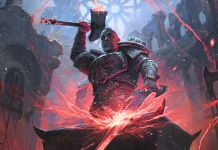
Those Problems With Path Of Exile 2? Some May Be Intentionally Part Of A More Free-flowing Dev Style
It seems there’s a lot of winging it going on.
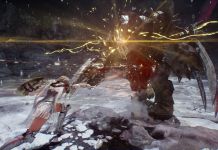
The test will include changes based on feedback from the March pre-alpha test.
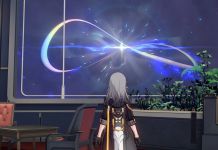
Gameplay and storytelling are both important to RPGs. So how do devs weigh that?
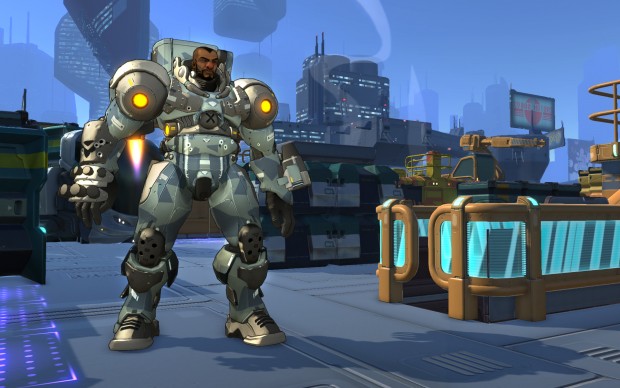
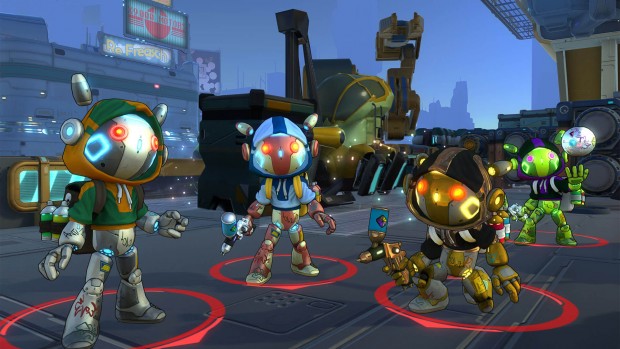
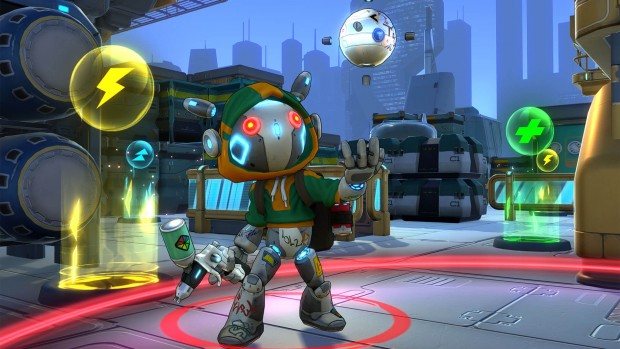
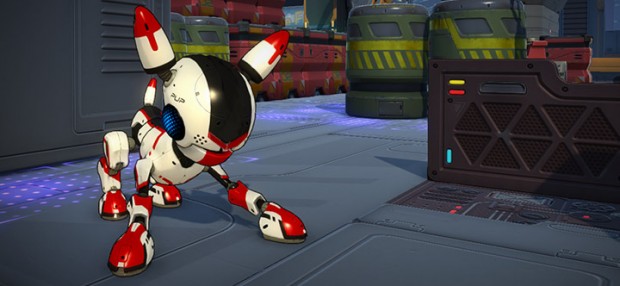
most successful f2p games have cosmetic stuff as their main revenue, not consumables... especially the competitive ones
but they can sell cosmetic stuff in a b2p game too, so why not also charge for the game?
"We don’t see it as a niche, and we do think we need to do a vastly better job of communicating what the game is about and who it can all appeal to. “People who enjoy playing competitive games with great characters, and great weapons and abilities, but may not want to do so by being the fastest in terms of actions per minute” is a massive potential audience."
yeah, the people that like competitive but not action oriented gameplay are a NICHE... there is a reason why there are not a lot of turn-based games on the market '-'
it is so sad to see a good game in the hands of this type of publisher